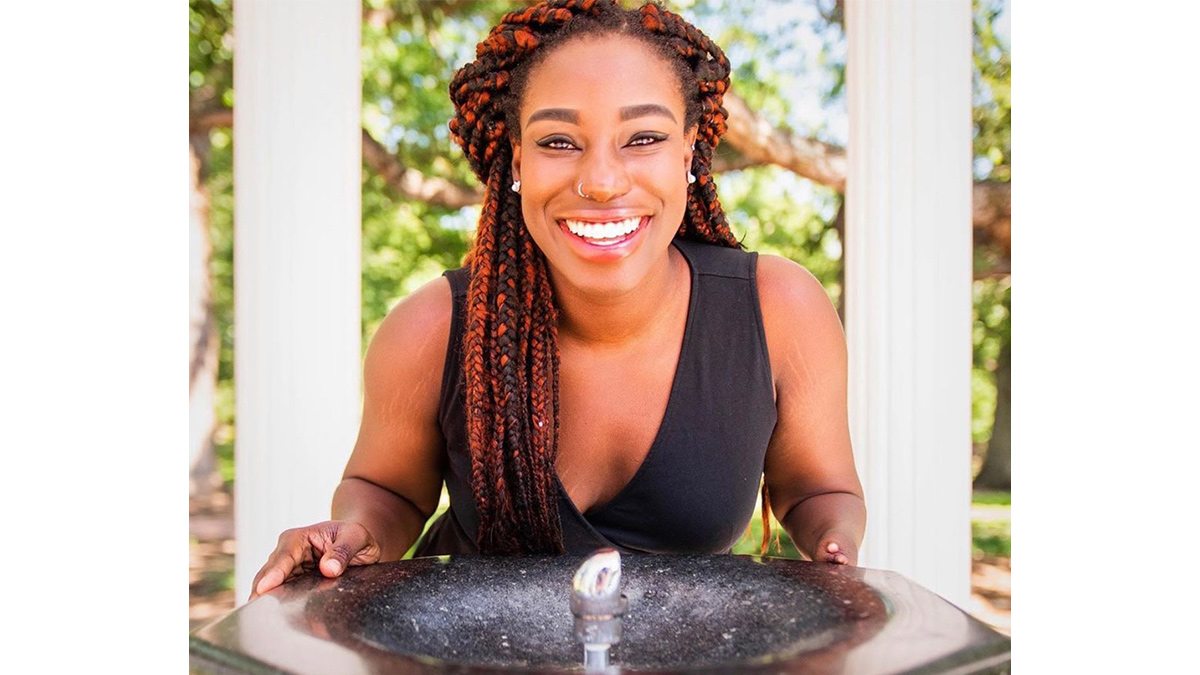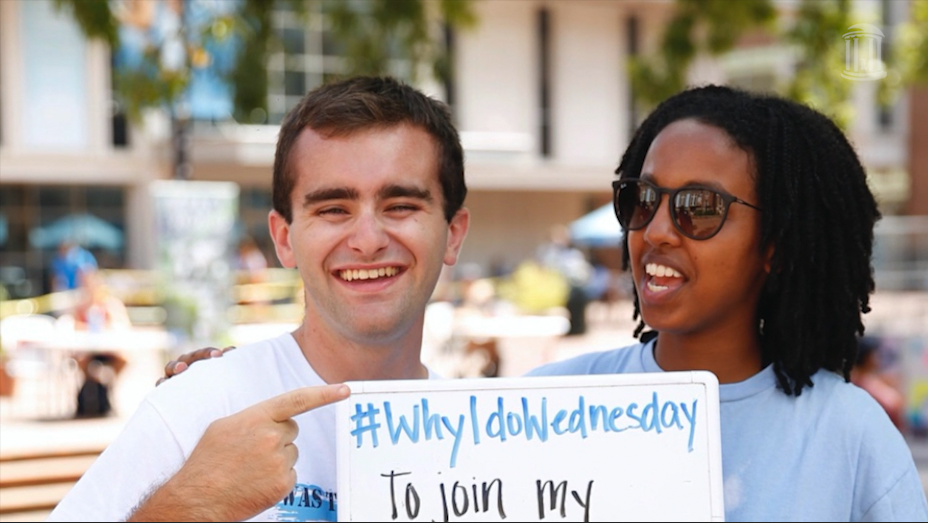Chasing challenges at Carolina
For senior Malikiya Hinds, graduating from Carolina is proof of her resiliency and a reminder of all that she's overcome to earn her degree.

A diploma from the University of North Carolina at Chapel Hill is more than just a piece of paper. It means something different for everybody.
It can represent a first-generation student turning a new page for his or her family. It could be the culmination of a lifelong dream or the first step to a long sought-after career.
For Malikiya Hinds, her Carolina diploma is proof of her resiliency and a reminder that she was strong enough to leave her home country on her own and excel, to overcome a disability and find a way to conduct research, and to enroll in some of the University’s most daunting courses and earn honors.
“The degree for me represents all these years of hard work, all these tears that I’ve cried while transitioning to life in the States,” said Hinds, who majored in chemistry and minored in biology and Spanish. “Getting this degree represents that I was able to overcome anything that could have stopped me.”
Though her graduation ceremony has been postponed, Hinds is among the more than 4,000 students who will earn their degrees at the end of the semester and begin the next chapter of their lives.
Creating home
Hinds first strolled through Carolina’s campus during her first-year orientation. A native of Trinidad and Tobago, she didn’t have the chance to visit before applying. All she knew was that she wanted to do scientific research and that UNC-Chapel Hill could give her that opportunity.
The move wasn’t easy. Hinds not only had to navigate the challenges of being a new college student but also adapt to life in the United States. To combat homesickness, Hinds threw herself into her academics and found a passion for chemistry.
“It was the challenge of knowing that chemistry was hard, and I had to work at it,” she said. “I like not being able to look up my answers and struggling with the work.”
Hinds joined the Erie Lab to study biochemistry and biophysics her sophomore year, but working in a lab came with its own struggles. Born without her left hand, Hinds was uncertain how she would navigate in a research setting. With the support of the Erie lab, Hinds worked to find creative solutions that allowed her to excel.
“I was able to find ways to do the same experiments, the same methods using one hand and getting assistance if I needed it and tying things to other things so I could hold multiple things at one time,” she said.
In the lab, Hinds examined DNA mismatch repair — a critical topic for understanding how cancer develops — and it solidified her career interest in translative research that can be taken from the lab to a patient’s bedside.
“I liked to ask questions: ‘Why?’ or ‘How does it work?’ That’s how I know I’m destined to do some sort of research career,” she said.
A Tar Heel at heart
Ultimately, Hinds wants to conduct that research at the National Institute of Health. The next step toward that goal will now take her to the other side of U.S. 15-501, where she has been accepted into Duke University’s biochemistry doctoral program. Her trip down Tobacco Road won’t be changing her allegiances, however.
“I’m a Tar Heel forever,” she said. “I’ll always be a Tar Heel at heart. They have to accept that.”
Although she has spent hours researching DNA mismatch repair and focused her honors thesis on the topic, she is keeping her research options open as she begins her doctoral studies.
“There are so many great research opportunities out there,” she said. “DNA mismatch repair just happened to be the first phenomenal research field that I found myself in, and I really liked, but there’s so many more out there.”
A role model for future scientists
As Hinds prepares to close out her undergraduate career at Carolina, she says goodbye to a community that she has grown to love. After a challenging first year of balancing acclimating to a new country and finding her place on campus, Hinds spent the next three years connecting with the community as a residential adviser, peer mentor and a leader of the Caribbean Student Association.
“My freshman year, I wanted to go back home,” she said. “From my sophomore year, when I found other things to look forward to besides just a 4.0, I felt as though I was able to find my niche.”
One of her biggest missions as a Tar Heel was to advocate for more women of color to enter STEM fields, both as a mentor for current students and as a McNair Scholar connecting with high school students. Representation of people of color and of people with disabilities actively working in science, Hinds said, is critical to bring more people into the field.
Now, four years after moving to the United States by herself, all the struggles she faced and the victories she achieved through her personal determination have paved the way for Hinds to be that crucial representation for future researchers.
Her Carolina diploma is proof of not just her resiliency. It’s also proof the door has opened a little more for people like her.
“Looking back on it, I regret nothing,” she said. “I would never change my experience at Carolina.”




